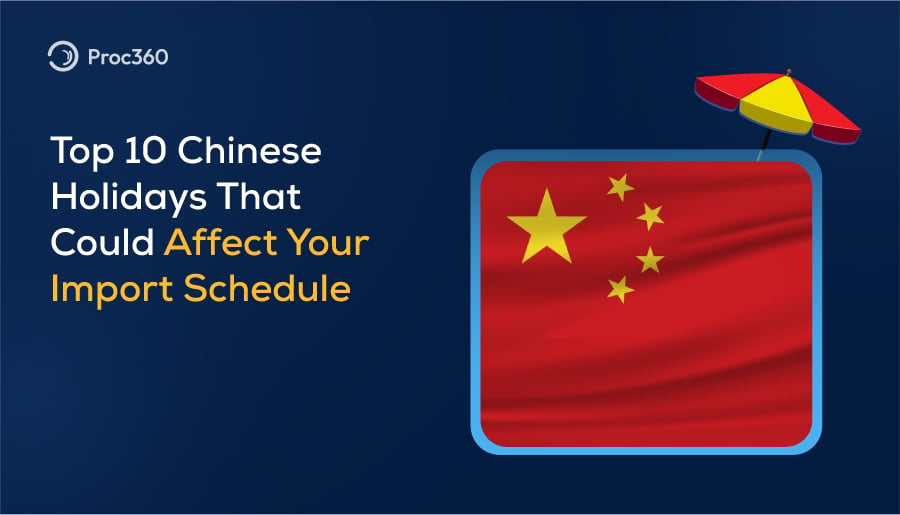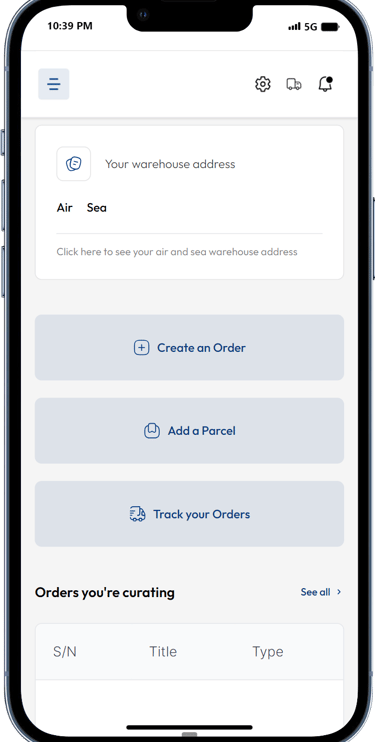Top 10 Chinese Holidays That Could Affect Your Import Schedule
Discover the top 10 Chinese holidays that could impact your import schedule. Learn how to plan around these key dates to avoid shipping delays and keep your supply chain running smoothly. Perfect for Nigerian and Ghanaian importers looking to optimize their business operations.
Bidemi Oyelola


When importing from China, it’s crucial to be aware of national holidays that could disrupt your supply chain. Chinese holidays often result in factory shutdowns, shipping delays, and longer lead times. In this guide, we'll highlight the top 10 Chinese holidays that Nigerian and Ghanaian importers need to keep on their radar. Understanding these dates will help you plan better, avoid delays, and ensure your shipments arrive on time.
1. Chinese New Year (Spring Festival)
When: Varies (Late January or February, lasts 15 days)
Impact:
Chinese New Year is the most significant holiday in China, and it can severely affect your import schedule. Factories usually close for at least two weeks, and many workers take extended breaks. Production slows down weeks before the holiday and takes time to ramp up afterward.
Tip: Plan your orders months in advance to avoid delays during and after Chinese New Year.
2. National Day (Golden Week)
When: October 1st to October 7th
Impact:
National Day marks the founding of the People’s Republic of China, and it leads to a week-long break known as Golden Week. During this period, factories, logistics companies, and even ports may close. You can expect significant delays in both production and shipping.
Tip: Avoid scheduling shipments during Golden Week and account for extended delivery times.
3. Mid-Autumn Festival
When: Varies (September or October, lasts 1-3 days)
Impact:
While not as disruptive as Chinese New Year or Golden Week, the Mid-Autumn Festival can still result in factory closures and shipping delays. Many businesses operate on a reduced schedule, so it's essential to anticipate slight disruptions.
Tip: If you have urgent orders around this time, discuss your timeline with suppliers well in advance.
4. Labor Day (May Day)
When: May 1st to May 5th
Impact:
Labor Day celebrations in China lead to a multi-day public holiday. Many factories and shipping companies close or operate with reduced staff, causing slower production and potential delays in shipments.
Tip: Place orders early to avoid slowdowns around this time.
5. Qingming Festival (Tomb-Sweeping Day)
When: April 4th or 5th (1-3 days)
Impact:
This traditional holiday is a time for families to honor their ancestors. Many businesses close for a day or more, which can cause minor interruptions in production and shipping schedules.
Tip: Expect short delays, and coordinate closely with suppliers to manage timelines.
6. Dragon Boat Festival
When: Varies (May or June, lasts 1-3 days)
Impact:
The Dragon Boat Festival is another public holiday where businesses close temporarily. While the holiday is shorter, it can still disrupt factory schedules and shipping logistics.
Tip: Plan shipments well in advance if they’re around the festival period to avoid hold-ups.
7. Chinese Valentine’s Day (Qixi Festival)
When: Varies (Usually in August, lasts 1 day)
Impact:
While not a public holiday, this romantic celebration can lead to smaller-scale factory closures, especially in the fashion and consumer goods industries. Some workers may take time off, leading to slight production delays.
Tip: Minor disruptions might occur, but it’s generally not as impactful as other major holidays.
8. Lantern Festival
When: 15 days after Chinese New Year (February or March)
Impact:
This holiday marks the end of the Chinese New Year celebrations. While the impact is generally less severe than during the New Year period itself, some factories may still experience closures as workers take additional time off.
Tip: Be prepared for minor delays in the weeks following Chinese New Year.
9. Double Ninth Festival (Chongyang Festival)
When: Varies (Usually in October, lasts 1 day)
Impact:
While not a major commercial holiday, the Double Ninth Festival is a traditional time for family gatherings. Some businesses may close for a day, leading to minor production delays.
Tip: Anticipate only slight disruptions around this time, mostly in smaller factories.
10. Winter Solstice Festival (Dongzhi Festival)
When: December 21st or 22nd
Impact:
While not a widely observed holiday, the Winter Solstice is important in certain regions of China. Some small businesses may close for the day, but overall, the impact on supply chains is minimal.
Tip: Most production and shipping activities will continue as usual, but minor delays could occur.
Conclusion
Planning your import schedule around Chinese holidays is essential for Nigerian and Ghanaian importers. Understanding when factories close and how long holidays last can help you avoid unexpected delays and keep your supply chain running smoothly. Be proactive in your communication with suppliers, place orders early, and always have contingency plans in place.
At Proc360, we help importers navigate the complexities of sourcing and shipping from China, including planning around national holidays. With our real-time tracking, logistics management, and reliable supplier network, you can keep your business running smoothly, no matter the time of year.


